Introduction to Logistic Services In Singapore
If you are running a business, you already know that logistics is the backbone of your operations. Logistics services are the processes involved in the planning, implementing, and controlling the movement of goods and services from the point of origin to the point of consumption. This includes transportation, warehousing, inventory management, and order fulfillment.
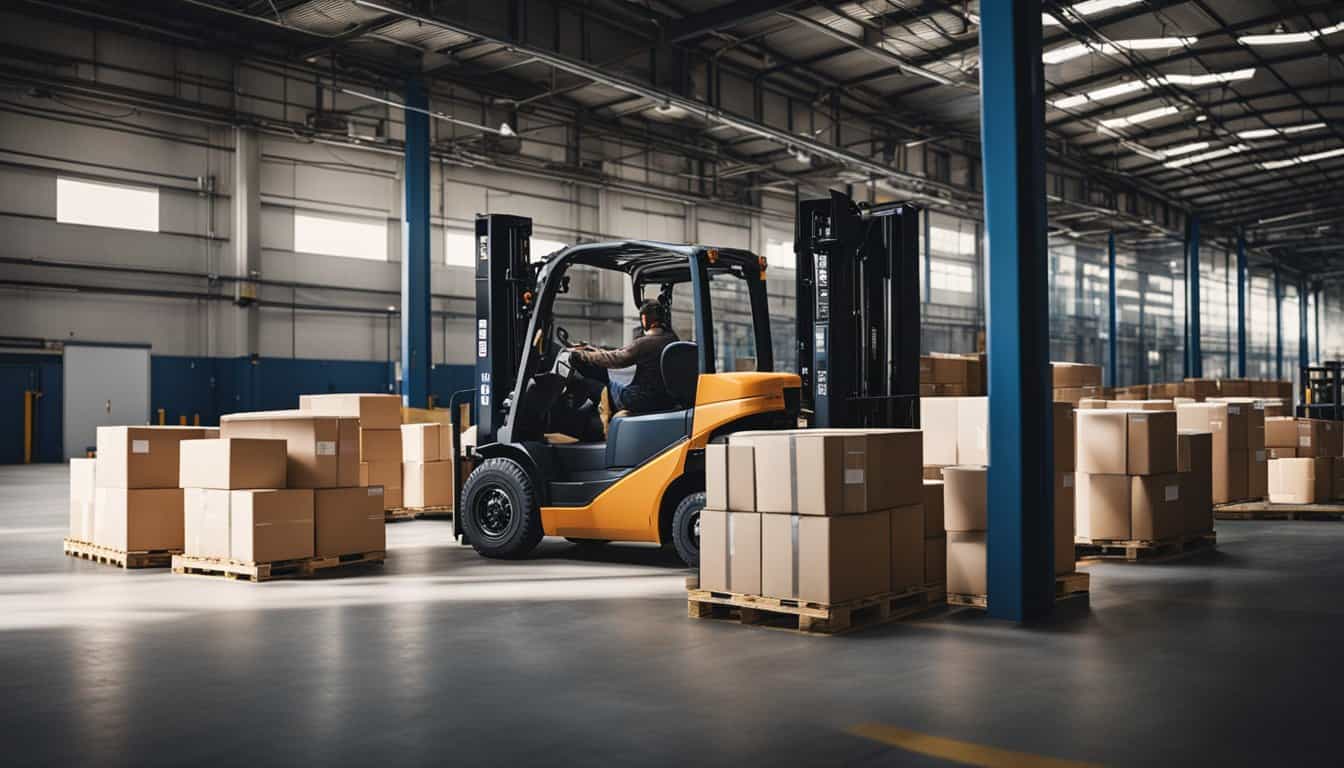
Understanding logistics services is crucial for businesses that want to streamline their operations, reduce costs, and improve customer satisfaction. With the rise of e-commerce, logistics services have become more complex and demanding. Companies must be able to adapt to changes in the global market, implement new technologies, and provide exceptional customer service.
Logistics services play a strategic role in the success of your business. By leveraging logistics services, you can gain a competitive advantage, expand your market reach, and improve your bottom line. In this article, we will explore the different types of logistics services, their strategic importance, and the latest innovations in the field.
Key Takeaways
- Logistics services are crucial for businesses that want to streamline their operations, reduce costs, and improve customer satisfaction.
- Logistics services play a strategic role in the success of your business by providing a competitive advantage, expanding your market reach, and improving your bottom line.
- Innovations in logistics, e-commerce logistics, and specialized logistics services are changing the way businesses operate and compete in the global market.
Understanding Logistics Services
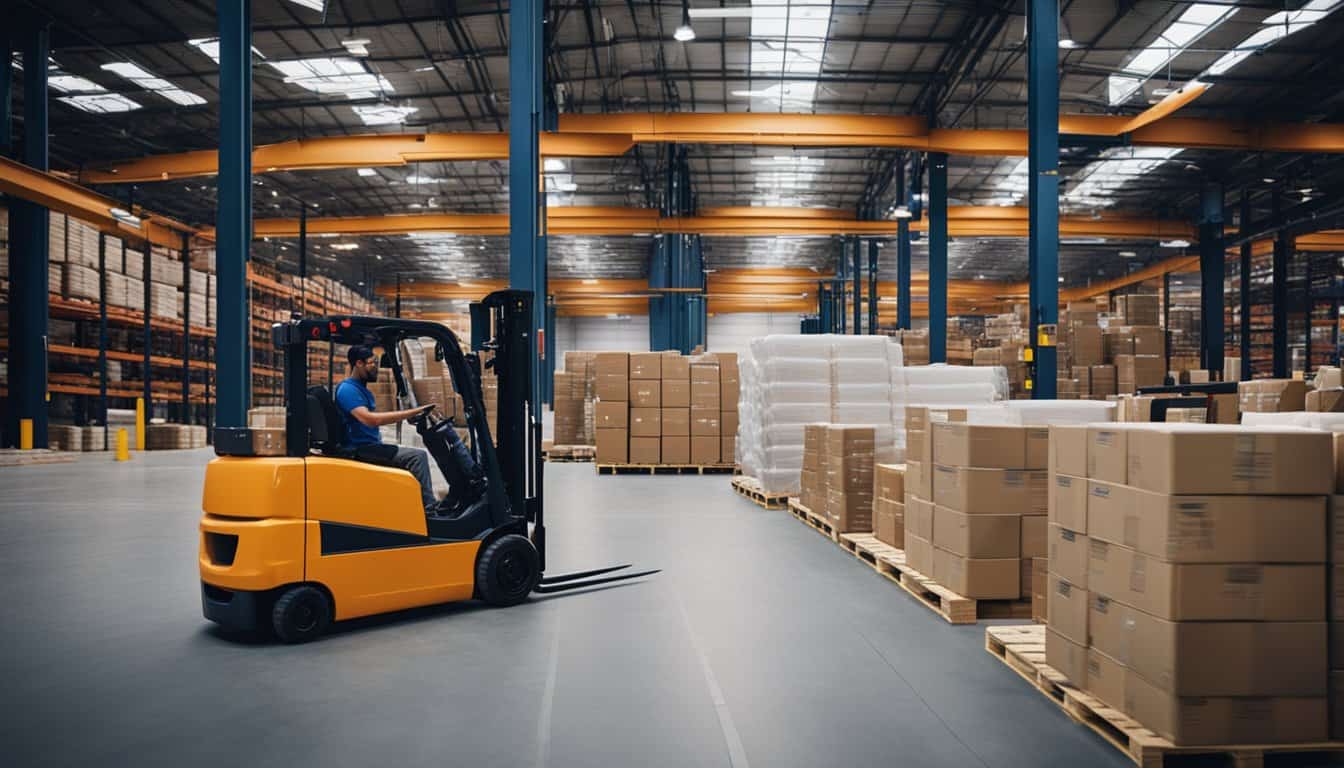
Logistics services are an essential component of the supply chain management process. They help businesses move goods and materials efficiently and cost-effectively from the point of origin to the point of consumption. In this section, we will explore the role of logistics in supply chain management and the key components of logistics services.
The Role of Logistics in Supply Chain Management
Logistics plays a critical role in supply chain management. It involves the planning, implementation, and control of the flow and storage of goods, services, and related information from the point of origin to the point of consumption. Logistics services help businesses manage their inventory, transportation, delivery, and supply chain visibility, ensuring that goods and materials are delivered to the right place, at the right time, and in the right condition.
Key Components of Logistics Services
There are several key components of logistics services that businesses should be aware of. These include:
- Warehousing: Warehousing is the process of storing goods and materials in a safe and secure environment until they are ready to be transported to the point of consumption. Warehousing helps businesses manage their inventory levels, reduce the risk of damage or loss, and improve supply chain visibility.
- Transportation: Transportation is the process of moving goods and materials from one location to another. It involves selecting the most appropriate mode of transportation, such as air, sea, rail, or road, based on the nature of the goods, the distance to be covered, and the delivery requirements.
- Delivery: Delivery is the process of getting goods and materials to the point of consumption. It involves coordinating with customers, carriers, and other stakeholders to ensure that goods are delivered on time and in the right condition.
- Supply Chain Visibility: Supply chain visibility is the ability to track goods and materials as they move through the supply chain. It involves using data and analytics to monitor inventory levels, transportation routes, delivery times, and other key performance indicators.
In conclusion, logistics services are an essential component of the supply chain management process. They help businesses manage their inventory, transportation, delivery, and supply chain visibility, ensuring that goods and materials are delivered to the right place, at the right time, and in the right condition. By understanding the role of logistics in supply chain management and the key components of logistics services, businesses can improve their operations, reduce costs, and enhance customer satisfaction.
Strategic Importance of Logistics Hubs

Logistics hubs are strategic locations that provide efficient and cost-effective transportation of goods. They are essential for the smooth functioning of supply chains and play a crucial role in the global economy. The importance of logistics hubs cannot be overstated, especially in Asia, where the demand for logistics services is growing rapidly.
Singapore: Asia’s Premier Logistics Hub
Singapore is widely regarded as Asia’s premier logistics hub. The country’s strategic location, excellent infrastructure, and efficient connectivity make it an ideal location for logistics companies. Singapore’s port is one of the busiest in the world, handling millions of containers each year. The country’s airport is also a major hub for air cargo, connecting Asia to the rest of the world.
Singapore’s status as a logistics hub is also due to its business-friendly environment and government support. The government has invested heavily in logistics infrastructure, such as the Tuas Mega Port, which is set to be the world’s largest fully automated container terminal when completed. The government has also implemented policies to attract logistics companies to Singapore, such as tax incentives and grants.
Infrastructure and Connectivity
Infrastructure and connectivity are critical factors that determine the success of a logistics hub. Singapore’s excellent infrastructure, including its ports, airports, and road networks, ensures that goods can be transported quickly and efficiently. The country’s connectivity to the rest of Asia and the world also makes it an attractive location for logistics companies.
In addition to Singapore, other countries in Asia are also investing heavily in logistics infrastructure and connectivity. For example, China’s Belt and Road Initiative aims to improve connectivity between Asia and Europe through the construction of new infrastructure, such as ports, railways, and highways. The initiative is expected to boost trade and economic growth in the region.
In conclusion, logistics hubs are essential for the smooth functioning of supply chains and play a crucial role in the global economy. Singapore’s status as Asia’s premier logistics hub is due to its excellent infrastructure, efficient connectivity, and business-friendly environment. Other countries in Asia are also investing in logistics infrastructure and connectivity, which is expected to boost trade and economic growth in the region.
Innovations in Logistics
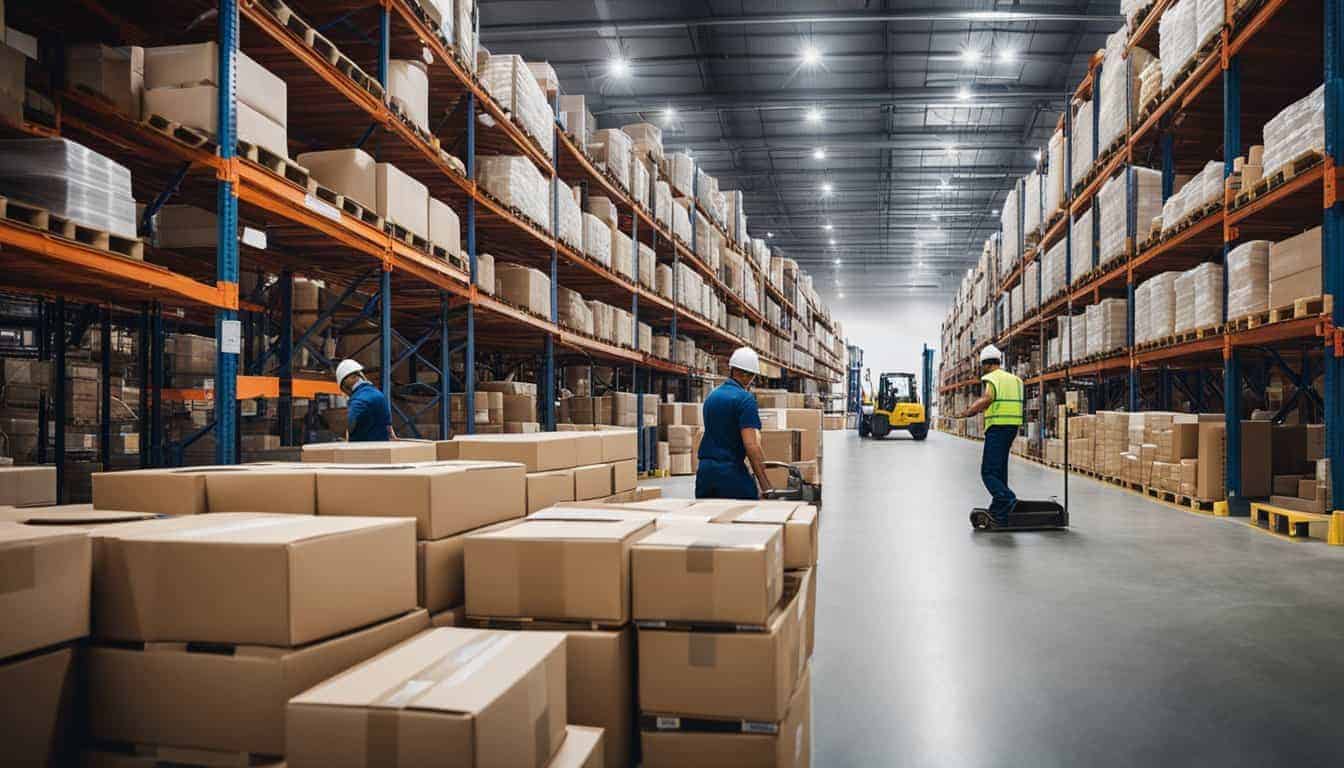
Logistics is an ever-evolving field, and with the advent of new technologies and the increasing emphasis on sustainability, there have been several exciting innovations in recent years. In this section, we will explore some of the most significant developments in logistics services.
Technology and Systems Integration
One of the most significant innovations in logistics has been the integration of advanced technologies and systems. With the increasing use of the Internet of Things (IoT), logistics companies can now track shipments in real-time, providing customers with accurate delivery estimates and improving overall supply chain visibility.
Another significant development has been the use of automation and robotics. Automated warehouses and distribution centres can speed up the handling of goods, reducing the time it takes to move products from one location to another. Robotics can also help with tasks such as picking and packing, reducing the need for human labour and improving efficiency.
Sustainability and Green Logistics
Sustainability has become a key focus in the logistics industry, and many companies are now taking steps to reduce their carbon footprint and promote eco-friendly practices. One of the most significant developments in this area has been the use of alternative fuels, such as electric and hybrid vehicles, to power transportation fleets.
Another important innovation has been the implementation of green logistics practices, such as optimising routes to reduce fuel consumption, using eco-friendly packaging materials, and recycling waste materials. By adopting these practices, logistics companies can not only reduce their environmental impact but also save costs and improve their reputation among customers.
In conclusion, the logistics industry is undergoing rapid change, with new technologies and sustainability practices driving innovation and improving efficiency. By embracing these developments, logistics companies can stay ahead of the curve and provide their customers with faster, more reliable, and more sustainable services.
Third-Party Logistics (3PL) Providers

Outsourcing logistics services to third-party logistics (3PL) providers can help you save time and money, while also improving the efficiency of your supply chain. 3PL providers offer a range of expertise, including transportation, warehousing, and fulfilment services. By partnering with a 3PL provider, you can focus on your core business activities and leave the logistics to the experts.
Benefits of Outsourcing to 3PL Providers
One of the main benefits of outsourcing to 3PL providers is cost savings. By partnering with a 3PL provider, you can avoid the high costs of maintaining your own logistics infrastructure, including warehouses, trucks, and technology. 3PL providers have economies of scale and can offer lower rates for transportation, warehousing, and other services.
Another benefit of outsourcing to 3PL providers is improved efficiency. 3PL providers have the expertise and technology to optimise your supply chain, reducing lead times and improving order fulfilment. They can also provide real-time visibility into your inventory and shipments, allowing you to make better-informed decisions.
Selecting the Right 3PL Partner
When selecting a 3PL partner, it’s important to consider their expertise, experience, and reputation. Look for a provider that has experience in your industry and can offer the specific services you need. You should also consider their technology capabilities, as well as their track record for on-time delivery and customer service.
Other factors to consider when selecting a 3PL partner include their geographic coverage, pricing structure, and flexibility. You should also evaluate their security and compliance measures, as well as their disaster recovery plans.
In conclusion, outsourcing logistics services to 3PL providers can provide numerous benefits for your business. By partnering with a 3PL provider, you can save time and money, while also improving the efficiency of your supply chain. When selecting a 3PL partner, it’s important to consider their expertise, experience, and reputation, as well as their technology capabilities and pricing structure.
Warehouse Management
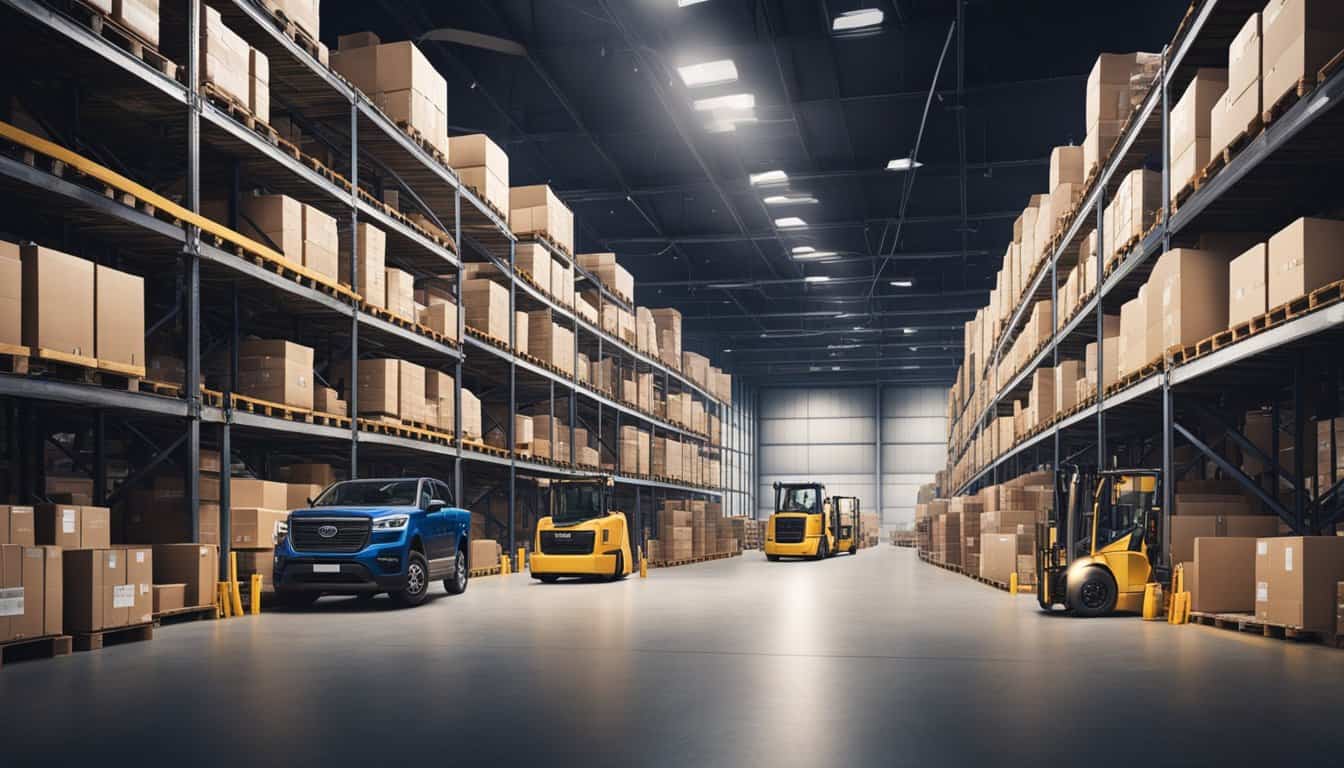
Managing your warehouse effectively is key to ensuring that your logistics services run smoothly. Warehouse management involves overseeing the storage of goods, their movement, and distribution.
Storage Solutions and Distribution
Warehouses are designed to store goods safely and securely. They are equipped with racking systems, shelving, and other storage solutions that help to maximise space and ensure that goods are stored in an organised and efficient manner.
When it comes to distribution, warehouses play a vital role in ensuring that goods are delivered to their final destination in a timely and cost-effective manner. By using an effective warehouse management system, you can ensure that your goods are stored in the right place, at the right time, and are ready to be shipped when needed.
Warehouse Operations and Efficiency
Efficient warehouse operations are essential for ensuring that your logistics services are successful. This involves managing your inventory effectively, tracking goods as they move through the warehouse, and ensuring that orders are fulfilled accurately and on time.
To improve warehouse efficiency, you can use a range of tools and techniques, such as automation, barcode scanning, and RFID technology. These solutions can help you to reduce errors, increase accuracy, and speed up the time it takes to process orders.
Overall, effective warehouse management is essential for ensuring that your logistics services run smoothly. By implementing the right storage solutions and distribution strategies, and using the latest warehouse operations and efficiency tools, you can improve your logistics services and provide your customers with a better experience.
E-Commerce Logistics
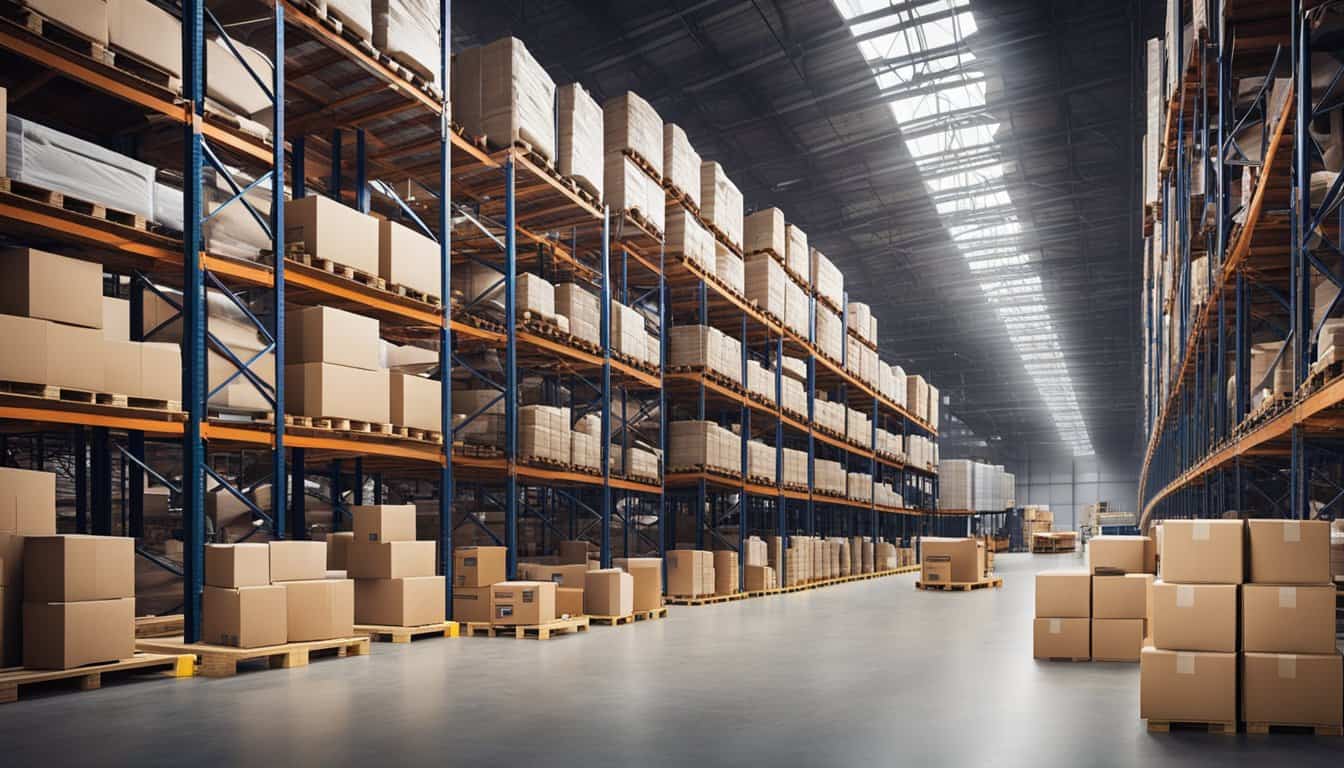
If you are running an e-commerce business, then you know that logistics is a critical aspect of your operations. You need to ensure that your products are delivered to your customers on time and in good condition. E-commerce logistics involves managing the flow of goods from your warehouse to your customers’ doorstep.
Meeting the Demands of Online Consumers
Online consumers expect fast and reliable delivery of their purchases. As an e-commerce business owner, you need to ensure that your logistics service provider can meet these demands. Your logistics provider should have a robust delivery network that can reach your customers in the shortest possible time.
To provide a seamless delivery experience, you can consider using a logistics service provider that offers real-time tracking of deliveries. This way, your customers can track their orders and know exactly when to expect their deliveries.
Returns Management and Reverse Logistics
Returns management is an essential aspect of e-commerce logistics. Customers may want to return products for various reasons, such as receiving damaged goods or products that do not meet their expectations. As an e-commerce business owner, you need to have a clear returns policy that outlines how customers can return products and what happens after the returns are received.
Your logistics service provider should have a robust returns management system that can handle the returns efficiently. This includes managing the reverse logistics process, where the returned products are sent back to your warehouse.
In conclusion, e-commerce logistics is critical to the success of your e-commerce business. You need to ensure that your logistics service provider can meet the demands of online consumers and provide efficient returns management. By doing so, you can provide a seamless delivery experience to your customers and build a loyal customer base.
Supply Chain Management Strategies

Managing your supply chain requires a set of strategies that can help you build a more resilient and flexible network. Here are some key strategies that can help you enhance your supply chain management:
Enhancing Supply Chain Flexibility
Flexibility is a key aspect of any successful supply chain. By building a flexible supply chain, you can respond quickly to changes in demand, supply, and market conditions. To enhance supply chain flexibility, you can:
- Diversify your supplier base: By working with multiple suppliers, you can reduce the risk of disruptions caused by a single supplier.
- Invest in technology: Technology such as automation, artificial intelligence, and blockchain can help you streamline your supply chain operations and make them more flexible.
- Use data analytics: Data analytics can help you gain insights into your supply chain operations, identify bottlenecks, and make informed decisions.
Supply Chain Operations and Workforce
Your supply chain operations and workforce play a critical role in managing your supply chain. To optimize your supply chain operations and workforce, you can:
- Focus on continuous improvement: By constantly improving your supply chain operations, you can reduce costs, increase efficiency, and improve customer satisfaction.
- Train your workforce: Your workforce is a key asset in managing your supply chain. By providing them with the right training and tools, you can improve their productivity and performance.
- Collaborate with your partners: Collaborating with your partners, including suppliers, distributors, and logistics providers, can help you optimize your supply chain operations and improve your overall performance.
By implementing these strategies, you can enhance your supply chain management and build a more resilient and flexible network.
Specialised Logistics Services
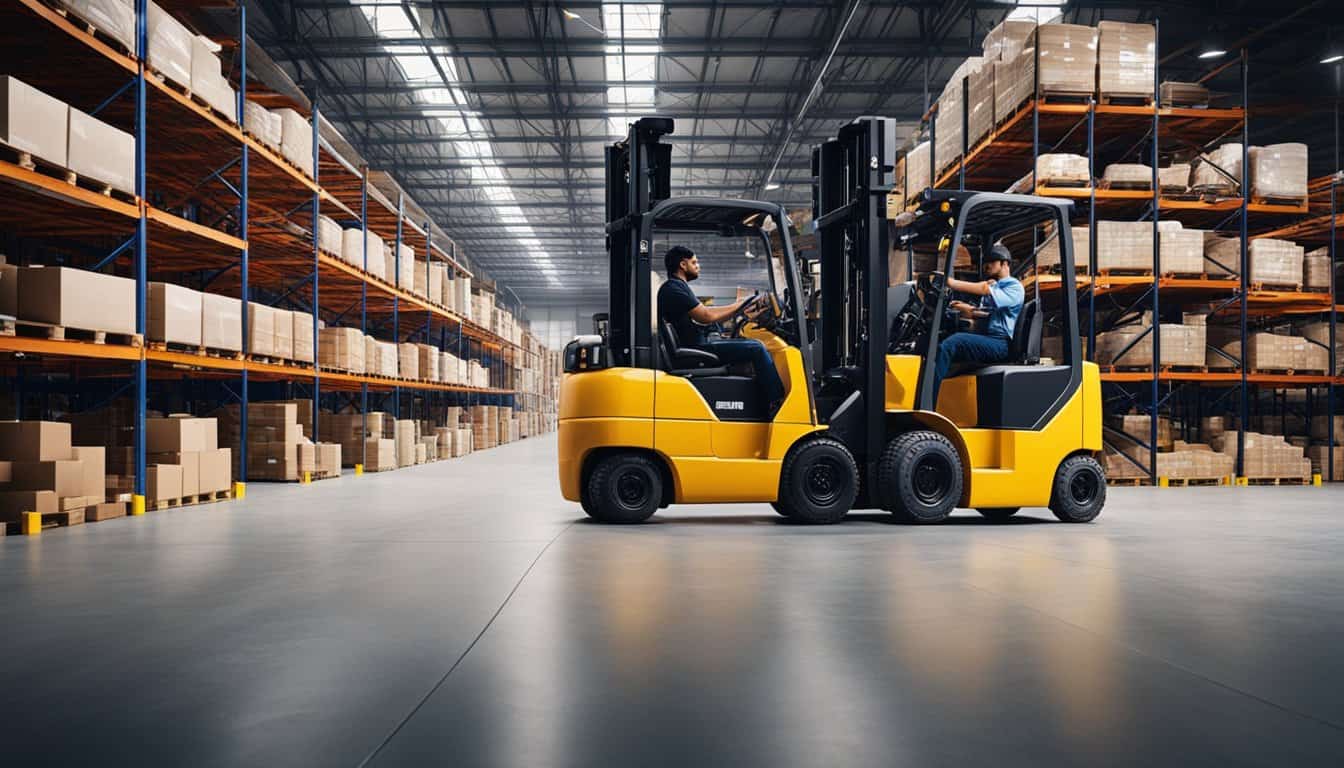
When it comes to logistics services, there are a variety of options available to meet your specific needs. One of the most important things to consider is whether you require specialised logistics services. Specialised logistics services are designed to handle unique and complex logistical challenges that may not be covered by standard logistics services. In this section, we will explore two types of specialised logistics services: Electronics and High-Value Goods Logistics, and Relocation and Fleet Management.
Electronics and High-Value Goods Logistics
If you are in the electronics industry or deal with high-value goods, you know how important it is to have a reliable logistics partner. That’s where specialised electronics and high-value goods logistics services come in. These services are designed to handle the unique needs of these industries, including the safe and secure transportation of fragile and valuable items.
Some of the features of electronics and high-value goods logistics services include:
- Specialised packaging and handling to ensure the safe transportation of fragile and valuable items
- Secure storage facilities with 24/7 monitoring and surveillance
- Customised transportation solutions that take into account the specific needs of your products
- Expertise in customs regulations and compliance to ensure smooth international transportation
Relocation and Fleet Management
If you are relocating your business or need to manage a fleet of vehicles, specialised relocation and fleet management services can help. These services are designed to make the process of moving your business or managing your fleet as smooth and efficient as possible.
Some of the features of relocation and fleet management services include:
- Comprehensive relocation planning and management services, including the coordination of all logistics and transportation needs
- Fleet management services that include maintenance, repairs, and fuel management
- Customised solutions that take into account the specific needs of your business and fleet
- Expertise in compliance and regulations related to fleet management and relocation
Overall, specialised logistics services can be a valuable asset to businesses that require unique and complex logistical solutions. Whether you are in the electronics industry, need to relocate your business, or manage a fleet of vehicles, specialised logistics services can help you meet your specific needs and ensure the safe and efficient transportation of your goods.
The Future of Logistics Services

As logistics services continue to evolve, the future looks bright with emerging trends and predictions that will shape the industry. Building resilience in supply chains is key to meeting the demands of clients and ensuring efficient re-export processes. Here are some of the exciting developments that are expected to shape the future of logistics services.
Emerging Trends and Predictions
The logistics industry is embracing digital transformation, and this trend is expected to continue in the future. Automation, artificial intelligence, and the Internet of Things (IoT) are already being used to streamline processes and improve efficiency. In the future, these technologies are expected to become even more sophisticated, leading to increased productivity and cost savings.
Another emerging trend is the use of blockchain technology to improve transparency and traceability in supply chains. With blockchain, all parties involved in a transaction have access to the same information, reducing the risk of fraud and improving accountability. This technology is expected to become increasingly important in the future, especially as clients demand more visibility into their supply chains.
Finally, sustainability is becoming an increasingly important consideration for logistics services. With climate change and environmental concerns at the forefront of public consciousness, companies are looking for ways to reduce their carbon footprint and operate in a more sustainable manner. This trend is expected to continue in the future, with logistics services investing in green technologies and practices to reduce their impact on the environment.
Building Resilience in Supply Chains
Building resilience in supply chains is crucial to ensuring that logistics services can meet the demands of clients and efficiently handle re-export processes. This involves identifying and mitigating risks, such as disruptions in transportation or supply chain bottlenecks.
One way to build resilience is to diversify supply chains, sourcing materials and products from multiple locations. This reduces the risk of disruptions in any one area and ensures that logistics services can continue to operate even in the face of unexpected challenges.
Another approach is to invest in technology that can help identify and mitigate risks. For example, predictive analytics can be used to identify potential disruptions before they occur, allowing logistics services to take proactive measures to address them.
In conclusion, the future of logistics services looks bright, with emerging trends and predictions that will shape the industry. By embracing digital transformation, using blockchain technology, and investing in sustainability, logistics services can stay ahead of the curve and meet the demands of clients. Building resilience in supply chains is key to ensuring efficient re-export processes and meeting the needs of clients.
Frequently Asked Questions

What incredible tasks does a logistics company tackle on a daily basis?
A logistics company handles a wide range of tasks on a daily basis. These tasks include transportation, warehousing, inventory management, order fulfillment, and customs clearance. Logistics companies also handle the coordination and communication between all parties involved in the supply chain, including suppliers, manufacturers, distributors, and retailers.
Could you enlighten me on the various types of logistics service providers out there?
There are several types of logistics service providers out there, including freight forwarders, third-party logistics providers (3PLs), and fourth-party logistics providers (4PLs). Freight forwarders mainly handle transportation and customs clearance, while 3PLs offer a broad range of logistics services, including transportation, warehousing, and inventory management. 4PLs, on the other hand, act as a single point of contact for managing the entire supply chain.
Who typically requires the expertise of a logistics service provider, and why?
Businesses of all sizes and industries require the expertise of logistics service providers. Small businesses may not have the resources or expertise to handle logistics in-house, while larger businesses may require additional support to manage complex supply chains. Logistics service providers can help businesses save time, reduce costs, and improve efficiency in their supply chain operations.
What are the essential services included in a comprehensive logistics services list?
A comprehensive logistics services list includes transportation, warehousing, inventory management, order fulfillment, customs clearance, and supply chain management. Logistics service providers may also offer additional services, such as packaging, labeling, and reverse logistics.
How do transportation and logistics services synergise to streamline supply chains?
Transportation and logistics services work together to streamline supply chains by optimizing transportation routes, reducing transit times, minimizing inventory levels, and improving communication between all parties involved in the supply chain. By working together, transportation and logistics services can help businesses reduce costs, improve efficiency, and enhance customer satisfaction.
In what ways can a robust logistics service provider transform a business’s operations?
A robust logistics service provider can transform a business’s operations by providing expertise, resources, and technology to optimize supply chain operations. By outsourcing logistics to a service provider, businesses can focus on their core competencies and leave logistics to the experts. A logistics service provider can help businesses reduce costs, improve efficiency, and enhance customer satisfaction, ultimately leading to increased revenue and growth.




